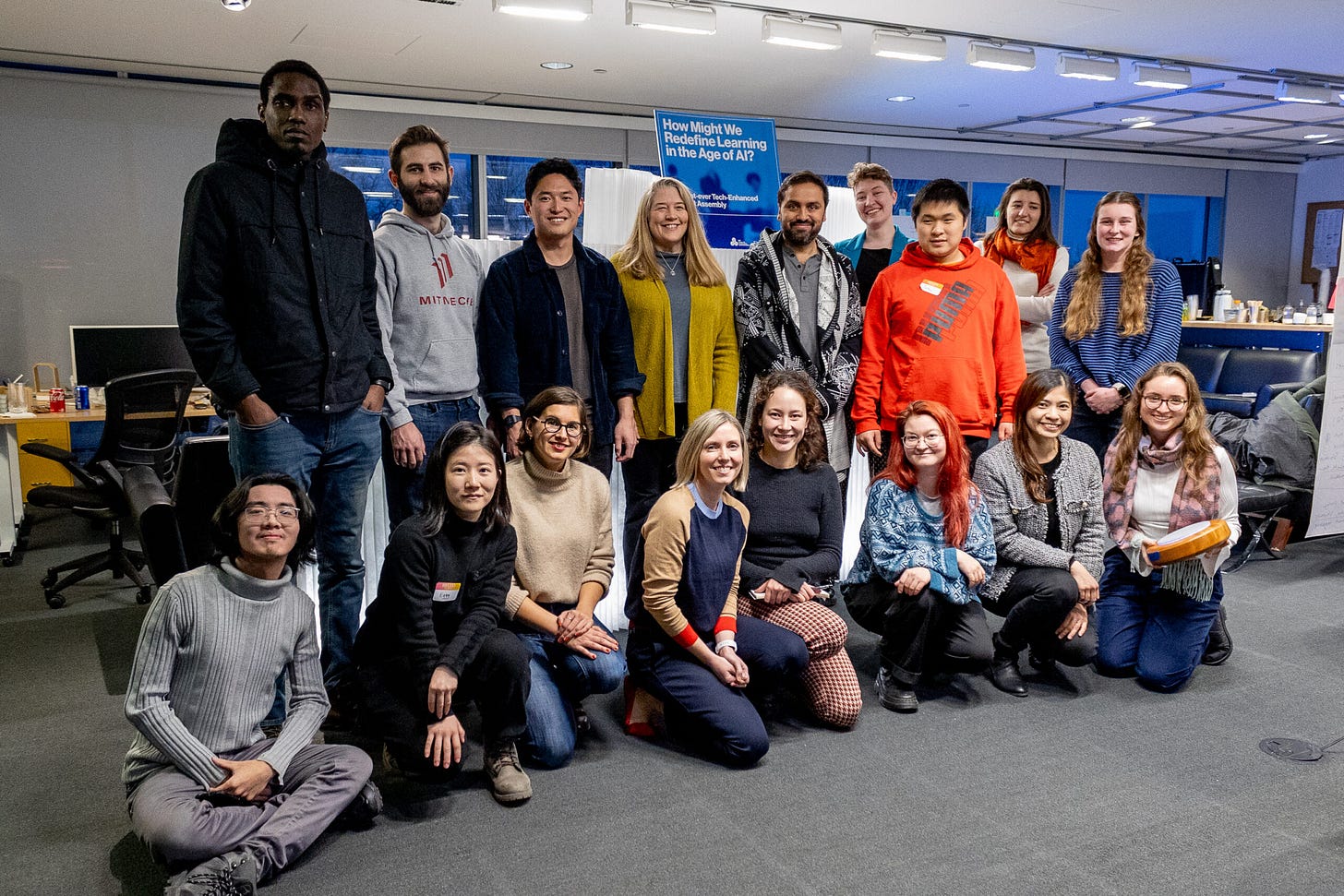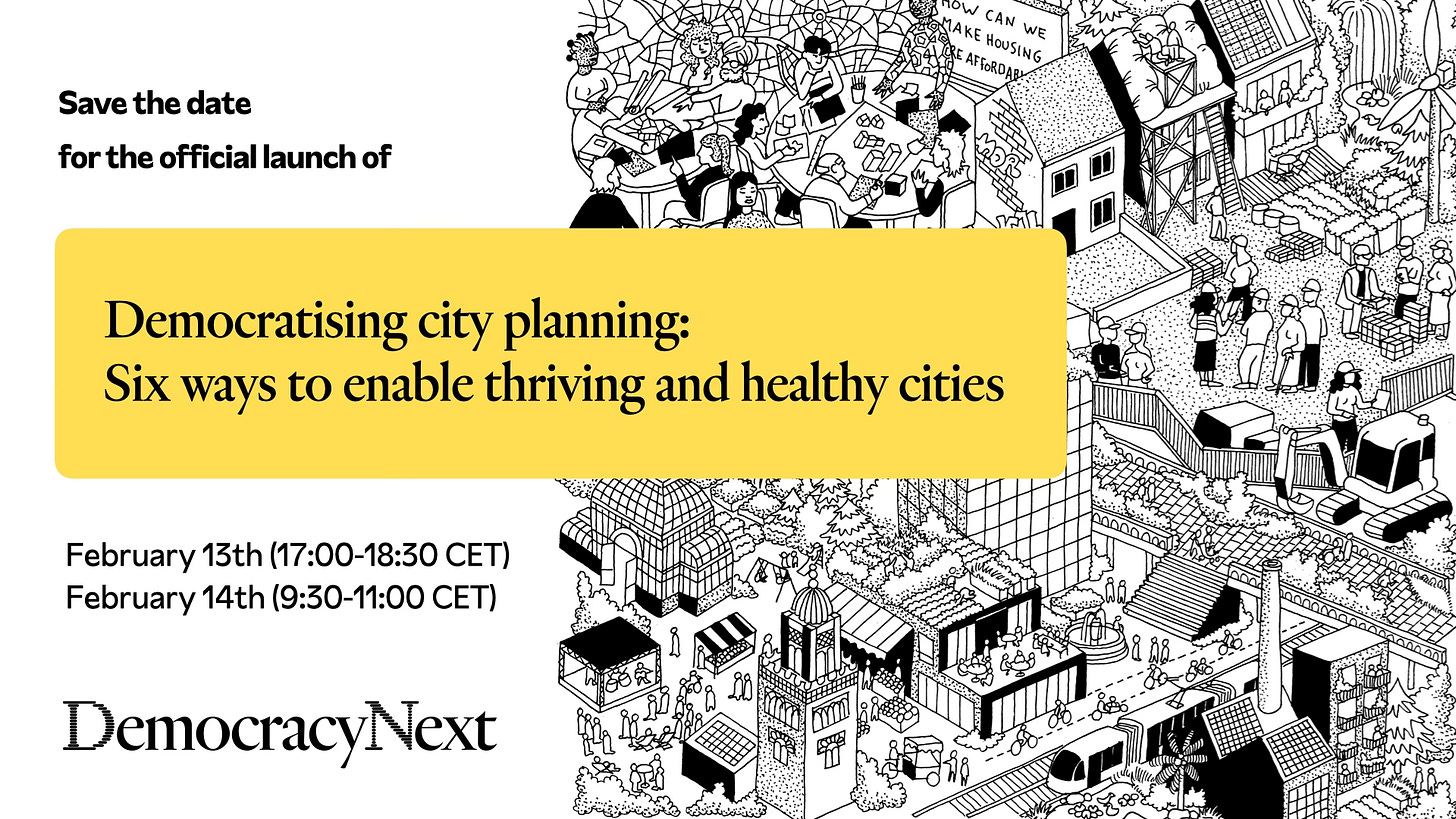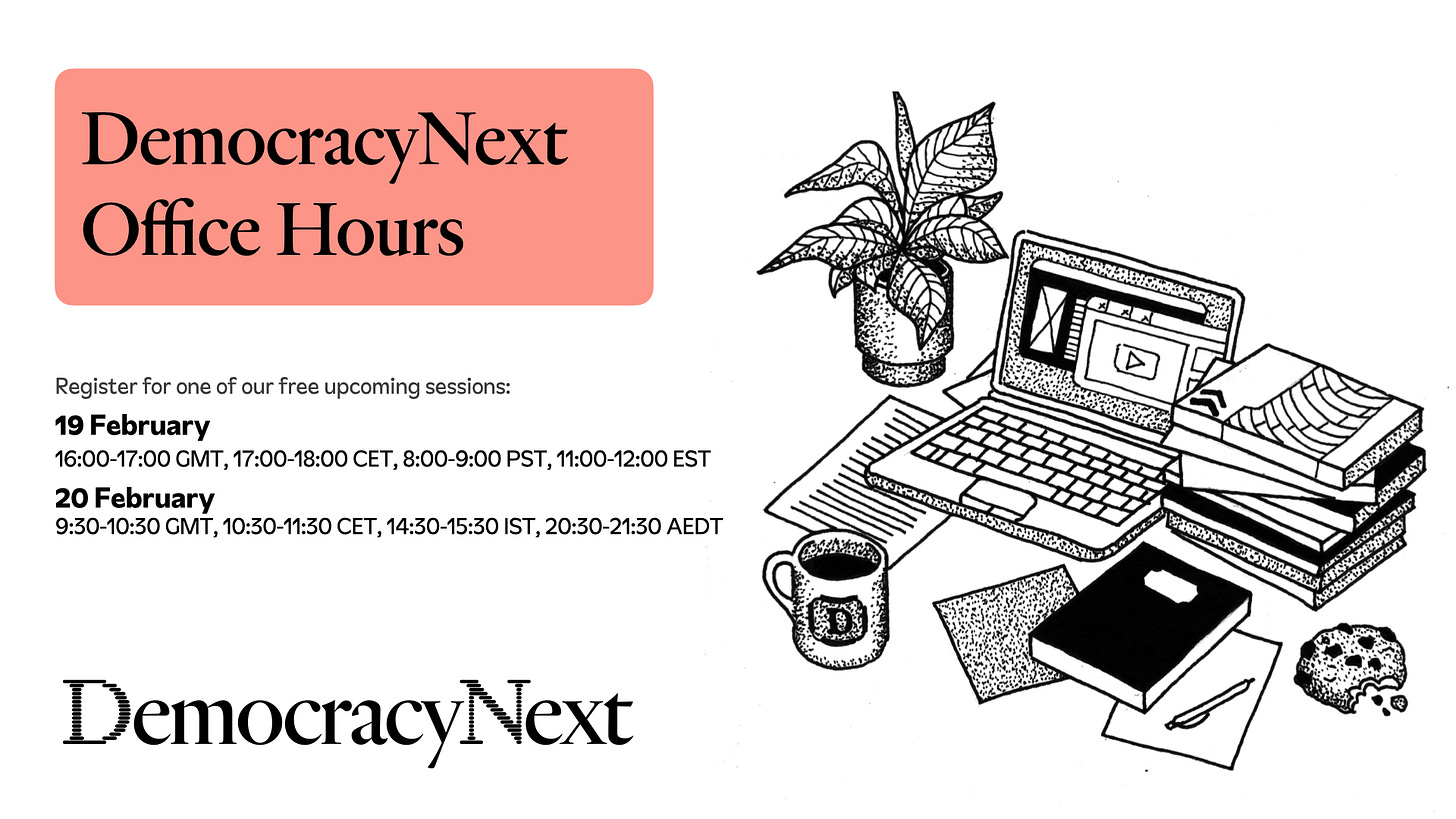The First-Ever Tech-Enhanced Student Assembly
A dozen students gathered to deliberate on ethical guidelines and regulations needed to govern the use of generative AI for faculty and students at MIT
The MIT Center for Constructive Communication (CCC) and the non-profit DemocracyNext came together to design and implement the first tech-enhanced and student-focused version of a Citizens’ Assembly.

“This Student Assembly was a landmark event for us,” says Professor Deb Roy, CCC director. “It was a critical first step in finding how to best integrate human-steered AI to elevate a broad spectrum of voices for meaningful civic discourse.”
Claudia Chwalisz, the founder and CEO of the international research and action institute DemocracyNext, explains that Citizens’ Assemblies “create the democratic spaces for people to grapple with the complexity of policy issues, listen to one another, and find common ground. In doing so, they create the conditions to overcome polarization and strengthen societal cohesion. They bring out the collective intelligence of society — the principle that many diverse people will come to better decisions than more homogenous groups.”
“We need more of these deliberative spaces not just in government, but in other institutions of daily life, including universities,” adds Dimitra Dimitrakopoulou, CCC’s head of translational research. “Especially during these extremely tense times on campuses across the US and the world, we hope this tech-enhanced Student Assembly has served as a model for how educational institutions can help students to engage in meaningful deliberations on the important issues with which they are now grappling.”
In this exploratory three-day event, it was termed a “Student Assembly” to indicate that the group was not selected via a formal sortition process (selecting decision makers by lottery); instead, students were able to enroll in this as a three-day workshop during the Independent Activities Period (IAP) at MIT. Assembly members included both undergraduate and graduate students from a variety of academic disciplines, from applied mathematics and computer science to urban studies and planning.



Assembly members were asked to collectively deliberate about the risks and benefits in using Generative AI as part of the learning experience in the classroom.
Over the course of the three days, members engaged in the typical experiences of Citizens’ Assemblies, including:
A panel discussion with experts, featuring Dr. Janet Rankin, director of teaching and learning at MIT, Dr. Jad Kabbara, research scientist at CCC, and Prerna Rav, PhD student at the MIT Computer Science & Artificial Intelligence Laboratory (CSAIL).
Small group deliberation followed by large-group plenary discussions.
Voting on a final series of recommendations (only those that received more than 75% endorsement across the Assembly members were adopted).
Members were also able to engage with novel tools designed and implemented by CCC students to enhance conversations and learning, such as:
Analogia, a story-telling card game designed by Cassie Lee, graduate student at CCC.
Recorded small group conversations using the conversation platform Fora run by CCC’s non-profit deployment partner, Cortico.
AI-generated summaries of small group conversations developed by CCC graduate students Michael Wong and Shrestha Mohanty. Interactive boards and visualizations that mapped conversation dynamics, such as tension and closeness, over the course of the assembly designed by CCC PhD student Maggie Hughes with input from CCC graduate student Naana Obeng-Marnu.
Pre- and post-surveys to capture members’ sentiment and engagement in the deliberative process designed by CCC PhD students Daniel Kessler and Suyash Fulay.

These technological enhancements offered unique avenues to innovate on existing Citizens’ Assembly processes and also posed interesting questions for the future of deliberation: How do we want AI tools to assist in sensemaking and where do the individuals themselves need to lead the hard work of synthesizing complex ideas? How do we use such technology responsibly, whether to support members and facilitators, or to increase visibility into the Assembly process for journalists and outside parties?
Student feedback will be used to further develop these tools and technologies in preparation for a Citizens’ Assembly in Bend, Oregon taking place in 2024 with around 36 citizens to deliberate on housing insecurity.
Democratising Urban Planning
🏙️ How can we democratise urban planning—in pursuit of greater mobility, affordability, and public health? We’ve got six big ideas that have emerged from 9 months of discussions with hundreds of stakeholders. A reminder that on 13-14 February, we’ll host two virtual discussions to launch our report on this. Between the two events, we’ve already had 200 people register, so we had to upgrade our Zoom plan to make room for more — space we’d love to fill!
Register if you haven’t already, or spread the word:
Register for Tuesday 13 February (8:00-9:30 PST, 11:00-12:30 EST, 16:00-17:30 GMT, 17:00-18:30 CET)
Register for Wednesday 14 February (16:00-17:30 GMT, 9:30-11:00 CET, 13:30-15:00 IST, 19:30-21:00 AEDT)
Do you have questions about Citizens’ Assemblies and how they work?
See if you can find a quick answer in our Assembling an Assembly Guide, and if you need further advice, drop in for a group Q&A with one of the DemNext team members. We’ll do our best to answer them.
Register here for one of our free upcoming sessions:
19 February 17:00-18:00 CET, 8:00-9:00 PST, 11:00-12:00 EST.
20 February 10:30-11:30 CET, 14:30-15:30 IST, 20:30-21:30 AEDT.
If you share your questions upon registration, it will help us prepare any additional links, resources, or examples to share with you during the session.
We are testing the interest and the format of these office hours sessions, which will evolve over time. Questions received during the sessions will also help us develop an online learning program on Citizens’ Assemblies, which we hope to make publicly available towards the end of 2024/early 2025.
📆 Upcoming events:
— Claudia Chwalisz is in Oregon from 30 Jan-3 February to meet with local partners and stakeholders to plan the Bend and Deschutes County Citizens’ Assembly
— Claudia will be speaking at the Yale conference on Governing Citizens’ Assemblies and Governing (with) AI organised by our advisor Hélène Landemore on 28 Feb-1 March
— Sign up for G1000 Spring school in Belgium from 20-22 March! Our Founding Head of Research and Learning Ieva Česnulaitytė will be there.
This course includes a 2 day training which “covers all aspects for setting up a well-designed deliberative process, given by specialists and project leaders in the field; a well-balanced mix of high standard knowledge and practical examples out of Denmark, United Kingdom, the Netherlands, Belgium; and a large variety of activities: learning sessions, practical workshops in small groups, Q&A sessions, networking moments.”
— Save the date for FIDE Spring school in Budapest 21-22 May.
“KNOCA - Knowledge network on Climate Assemblies and FIDE, in collaboration with DemNet Hungary (Foundation for Development of Democratic Rights), proudly present a new edition of the Spring School on Climate Citizens' Assemblies. Save the dates - May 21-22, and join us in the vibrant city of Budapest for an immersive exploration of democratic solutions to the climate crisis.”
What we’re reading:
🇧🇪 Wallonia, the French-speaking region of south Belgium, has begun a historic deliberative commission process. Their approach combines 30 citizens with 10 deputies from parliament, as Belgium continues to break new ground in democratic innovation.
🧠 A new survey by the Apolitical Foundation finds that politicians experience “lower mental wellbeing than emergency-service employees,” which is quite something.
🥣 Citizens selected by lottery in Germany have produced nine recommendations to parliament. They recommended universal free school meals, tax cuts for organic food, more plant-based alternatives, and more mandatory food labelling.
🌡️ In Milan, Italy, a Permanent Citizens' Assembly on Climate, composed of 90 citizens selected by lottery, is about to begin its second year of deliberations.
🇫🇷 Finally, the guarantors of last year’s French Citizens’ Assembly on End of Life have shared what they described as five interesting “lessons” from their experience.




